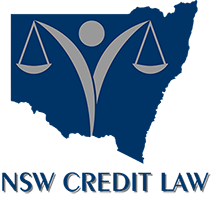Commercial Credit Checks
MITIGATE YOUR RISK In February 2022 NSW Credit Law has partnered with (creditor) watch so that it can provide its clients with commercial credit check services. Credit checks can be performed on any commercial entity that has an ABN or ACN. More than just an ASIC extract. Our searches include: Credit Risk Scores and Payment Ratings Payment Defaults Adverse Court Actions Adverse Insolvency Actions Cross Directorship ABR and ASIC data On file current ASIC extracts AFSA Bankruptcy Searches of Directors and Sole Traders Ability to lodge a Mercantile Footprint Credit Default Before you engage with new clients you can utilise the service to do
Debt Collection FAQs – Part 1
When should I refer a debt to a debt collection agency? The answer to this question depends on your own internal credit management procedures. It is well known within the business that the older a debt becomes the harder it is to collect. So sooner rather than later is suggested. We believe a debt should be referred to a collection agency as soon as you feel the debtor is not responding positively to your internal collection efforts. Look for these tell-tale signs that you have a recalcitrant debtor: The debtor has failed to honour, two or more promises to pay. Three or more
Conscionable Debt Collection
Further to our recent article – Am I a Debt Collector? - we now take a look at: What is debt collection? How should I go about debt collection? Illegal debt collection behaviour Unconscionable conduct What is debt collection? Debt collection takes place when creditors and collectors seek to secure payment from consumers or businesses who are legally bound to pay or to repay money they owe. It is important that any organisation (and its credit and accounts receivable engaged staff) involved in recovering debt is aware of its legal obligations. How should I go about debt collection? Principles of debt collection fairness You should
Strata Levy Contributions – Debt Recovery
The ability for an owners corporation to be able to initiate debt recovery action against defaulting lot owners is statutory. In NSW it is enshrined in the provisions of the Strata Schemes Management Act NSW 2015 (the “Act’). Recovery of legal costs A strata manager that was recently looking to engage our services to recover overdue levies from lot owners asked us: “Are all legal costs recoverable if we engage your services to recover overdue levies?” The reason for their question was that they had endured a negative experience on a case whereby a court had ruled that recovery of costs was unreasonable,
COVID-19 changes to strata and community schemes regulations
From today (21 July 2021), owners corporations and community land associations will again be able to validly meet and vote electronically without having previously adopted a resolution in this regard. The existing regulations on executing documents without the common seal and serving notice of meetings by email will remain. See Strata Schemes Management Amendment (COVID-19) Regulation (No 2) 2021 and Community Land Management Amendment (COVID-19) Regulation (No 2) 2021 for more information. These regulations will be in force until January 2022. REF: The Law Society NSW https://legislation.nsw.gov.au/view/pdf/asmade/sl-2021-402 https://legislation.nsw.gov.au/view/pdf/asmade/sl-2021-400
Champion v Challenger Campaigns – WIN-WIN for all Businesses
It is always fantastic to receive a phone call from a prospective new client that wants to throw plenty of work your way. But this does not happen every day. In fact, you may go weeks or months between these types of phone calls and easy win client acquisitions. There are any number of tried (or should that be tired) and tested sales methods to get yourself in front of prospective new clients to showcase your business and your service offering. Before I became a solicitor, I held a number of roles in the legal industry which involved sales and marketing
Hospitality Hurting
INSOLVENCY LAW - HOSPITALITY HURTING The hospitality sector is an integral part of the Australian economy and includes a diverse range of businesses including hotels, pubs, licensed bars, restaurants, cafes, leisure clubs and venues employing over 900,000 workers across the country. The forced closure and restrictions placed on restaurants, cafes and other hospitality venues during 2020 has had wide and damaging effects on the sector from which some businesses will not recover. With over 130,00 businesses in the sector, the market is already highly competitive with technology driving change across the industry and establishments working harder to differentiate their offering from that of
Insolvency Law – Changes to statutory demands from 1 January 2021- updated 1 July 2021
The temporary insolvency protections relating to statutory demands, which apply to all companies, ended on 31 December 2020. In the normal course, under section 459E of the Corporations Act, a creditor can issue a statutory demand against a company demanding payment of a debt of at least $2,000 (the Statutory Minimum) that is currently due and payable. The company then has 21 days after being served with the statutory demand to pay the demanded amount, reach an agreement with the creditor about the debt to the creditor's satisfaction, or to apply to a relevant court to have the statutory demand set
Privacy Law – Judgments and Credit Reporting
Credit reporting agencies are often utilised by lenders as part of a loan approval process. If you default on the loan the lender will issue notices, which if ignored may then result in the lender registering a default on your credit rating. Equifax is the largest credit reporting agency and holds about 85% of the consumer credit reporting market but there are smaller players in the market. A Court can also record a default on a person’s credit rating when legal proceedings have been issued to recover a debt and a judgment has been issued against the defendant. A judgment that is unpaid
Am I a ‘Debt Collector’?
Ask yourself this question











